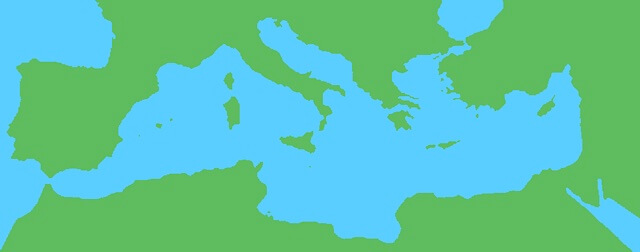The fall of Babylon. The fall of satan. Both are here with one the foreshadowing and type of another. And an impactful statement that we should be in mind.
The chapter opens up saying that Israel would return from Babylon, and Babylon would make it happen. This is exactly what happened when King Cyrus ordered the return of the Jews to their homeland, and even contributed to the financing of it complete with guards. It says also that Babylon who have been their captors would help them, and then become Israel’s captives.
The next section is a song of rejoicing and how hell awaits the king of Babylon. The other kings that have risen up against God and have been defeated welcome the king of Babylon to hell, reminding him that he too was made weak like them. And that “maggots are spread out under you, and worms cover you” (v. 11).
The next section is all about Lucifer, although with implications of Babylon. It’s the genre of typology again which we don’t have much of in Western world but is present in ancient Middle-Eastern literature. It talks about Lucifer (meaning “shining morning star”) tried to set his throne above God (v. 13). This is reminiscent of Ps 2 of what it looks like when kings try to separate themselves from the ways of God.
But Scripture says he would be brought down to Sheol, the deepest regions of the Pit.
And then there’s this verse that I love:
“Those who see you will stare at you; they will look closely at you; “Is this the man who caused the earth to tremble, who shook the kingdoms, who turned the world into wilderness, who destroyed its cities and would not release the prisoners to return home?” (vv. 16-17).
This is both a descriptor of the king of Babylon and of Lucifer. But these mighty powerful ones when brought low were so pitiful that people were astonished at them. They were nothing more than a balloon that had puffed up big and scary but inside were full of air. When deflated, they looked like nothing.
This is how I think of satan. We ascribe too much power to him when he is only a puffed up balloon to try to look big and scary. Pitiful. His power comes from the power we give him. In Christ, we have power over him. That’s why our fear belongs to God alone.
Then there’s judgment against the butchers of Assyria. God would break the back of Assyria and the yoke they placed upon Israel would be broken and Israel would go free. God decreed it and it would be done.
Philistia, the infamous warmongering nation, would also be cut down. They were celebrating because their enemy had been defeated. But the prophecy here is telling them not to even think about celebrating. “For a viper will come from the root of a snake” (v. 29). Sometimes the successor and typically son of an evil king would be more violent and more dangerous than the original. And that was going to happen here. Philistia too would face judgment for its wickedness. Israel would be returning home and nothing was going to stop that.
It’s a sobering thing to remember that God judges nations. Now I have a friend who would disagree and say that judgment of nations is all Old Testament as we don’t see that in the New Testament. But I’m not so sure. God is good and just and can only tolerate wickedness for so long before he must bring judgment.
So is God bringing judgment on the nations now for their wickedness? Every nation thinks its the bastion of righteousness. But remember that in Ezekiel 16 the sin of Sodom and Gomorrah was being arrogant, uncaring, overfed and prideful.



